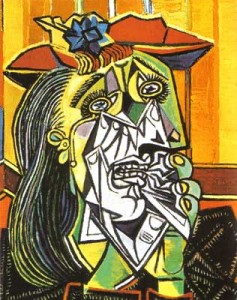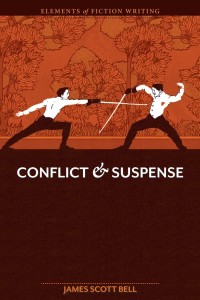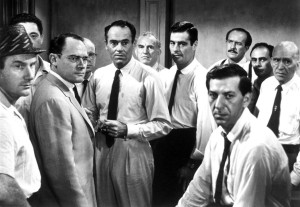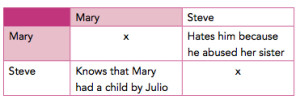By P.J. Parrish
Imagine you have just bought a novel. You haven’t read this author before but the cover was enticing, the back copy juicy. So you took a chance on a new writer. You are ready to be thrilled, chilled and transported to a place you’ve never been before.
Then you begin to read Chapter One. It’s written in the first person so the protag is identified only as “I.” I love first person novels because the reader-writer-protag bond is immediate and intense. Remember how Steve Hamilton opened his first novel A Cold Day in Paradise? – “There is a bullet in my chest less than a centimeter from my heart.” You gotta read more after that, right?
But what if you read page after page, chapter after chapter, and you never find out who “I” is? You never get the protag’s name. You don’t even get what gender “I” is. The only thing you finally learn about “I” is that “it” is a PI. And what if this goes on for the entire book?
It gets worse. What if you are never told where the story takes place? Or what year (or century!) it is. How long would you follow “I”? And how transported would you feel?
Okay, this is not a hypothetical. This is a real author. When I asked why this author chose to take this approach the author told me, “I did it on purpose. I didn’t want the reader to know his name or where it was taking place.”
Why? I asked.
The answer: “I’m trying to do something different because I want to stand out from the crowd. I didn’t want it to be the standard PI story.”
Well, this author had a point. It has always been hard to get noticed and get published traditionally. It’s even harder today. And it’s hard, even if you are self-pubbing via eBooks to get heard over the noise. And even if you do get published, it is hard to distinguish yourself in crime fiction as an original voice.
So where did this author go wrong?
This is just my opinion but I think it boils down to something very basic. This author tried to break the rules before he/she even understood them.
Quiz time. Who painted this:
Yeah, that’s a hard one. Here’s an easier one. Who painted this?
Anybody guess Picasso? Well, he painted both. The first was done when he was sixteen. The second when he was fifty-six. My point is, obviously, that even Picasso mastered all the basic elements of his art, got his craft under firm control, before he was able to find his unique innovative style. When he himself said, “It takes a long time to learn to be young” he was not taking about finding his joie de vivre. He was talking about absorbing the rules and then finding the courage to throw off their shackles.
All artists know this. The great choreographer George Balanchine created traditional story ballets in the style of “Swan Lake” before he developed the plotless style that revolutionized dance. Acting teacher Stella Adler famously said, “Craft makes talent possible.”
But let’s get back to our author. I so understand his/her impulse. We all want to believe we are different. But one of the points of fiction – maybe the main one – is to communicate and connect. And if you break that rule, you have broken the near sacred bond of fiction.
Yes, rules are made to be broken. And no, you should never ape someone else or slavishly cleave to the dictates of a genre. But until you know the rules of good craftsmanship, you will never be able to, in Picasso’s words “learn to be young.”
Can I leave you with one more thing on this subject? The following comes from Emma Coats, a Pixar storyboard artist. They are “rules” and I found them really inspiring and pretty darn useful for us bookish types. Read, digest and talk amongst yourself!
Pixar’s 22 Rules of Phenomenal Storytelling
1. You admire a character for trying more than for their successes.
2. You gotta keep in mind what’s interesting to you as an audience NOT what’s fun to do as a writer.
3. Trying for theme is important, but you won’t see what the story is actually about ’til you’re at the end of it. Now rewrite.
4. Once upon a time there was______________. Every day____________. One day__________. Because of that__________________________ until finally _____________________________.
5. Simplify. Focus. Combine characters. Hop over detours. You’ll feel like you’re losing valuable stuff but it actually sets you free.
6. What is your character good at, comfortable with? Throw the polar opposite at them. Challenge them. How do they deal?
7. Come up with your ending before you figure out your middle. Seriously. Endings are hard, get yours working up front.
8. Finish your story and let go, even if it’s not perfect. In an ideal world you have both, but move on. Do better next time.
9. When you’re stuck, make a list of what wouldn’t happen next. Lots of times the material to get you unstuck will show up.
10. Pull apart the stories you like. What you like in them is a part of you, you’ve got to recognize it before you can use it.
11. Putting it on paper lets you start fixing it. If it stays in your head, that perfect idea, you’ll never share it with anyone.
12. Discount the first thing that comes to mind and the second and the third and the fourth and the fifth. Get the obvious out of the way. Surprise yourself.
13. Give your characters opinions. Passive, malleable might seem likeable to you as a writer but its poison to the audience.
14. Why must you tell THIS story? What’s the belief burning within you that your story feeds off of. That’s the heart of it.
15. If you were your character in this situation, how would you feel? Honesty lends credibility to unbelievable situations.
16. What are the stakes? Give us reason to root for the character. What happens if they don’t succeed? Stack the odds against them.
17. No work is ever wasted. If it’s not working, let go and move on. It’ll come back around to be useful later.
18. Coincidences to get characters into trouble are great; coincidences to get them out of it is cheating.
19. You have to know yourself. The difference between doing your best and forcing the story is testing not refining.
20. Here’s an exercise: take the building blocks of a movie you dislike. How would you rearrange them into what you DO like.
21. You gotta identify with your character’s situations. You can’t just write cool. What would make YOU act that way?
22. What’s the essence of your story, the most economical telling of it? If you know that, you can build out from there.










